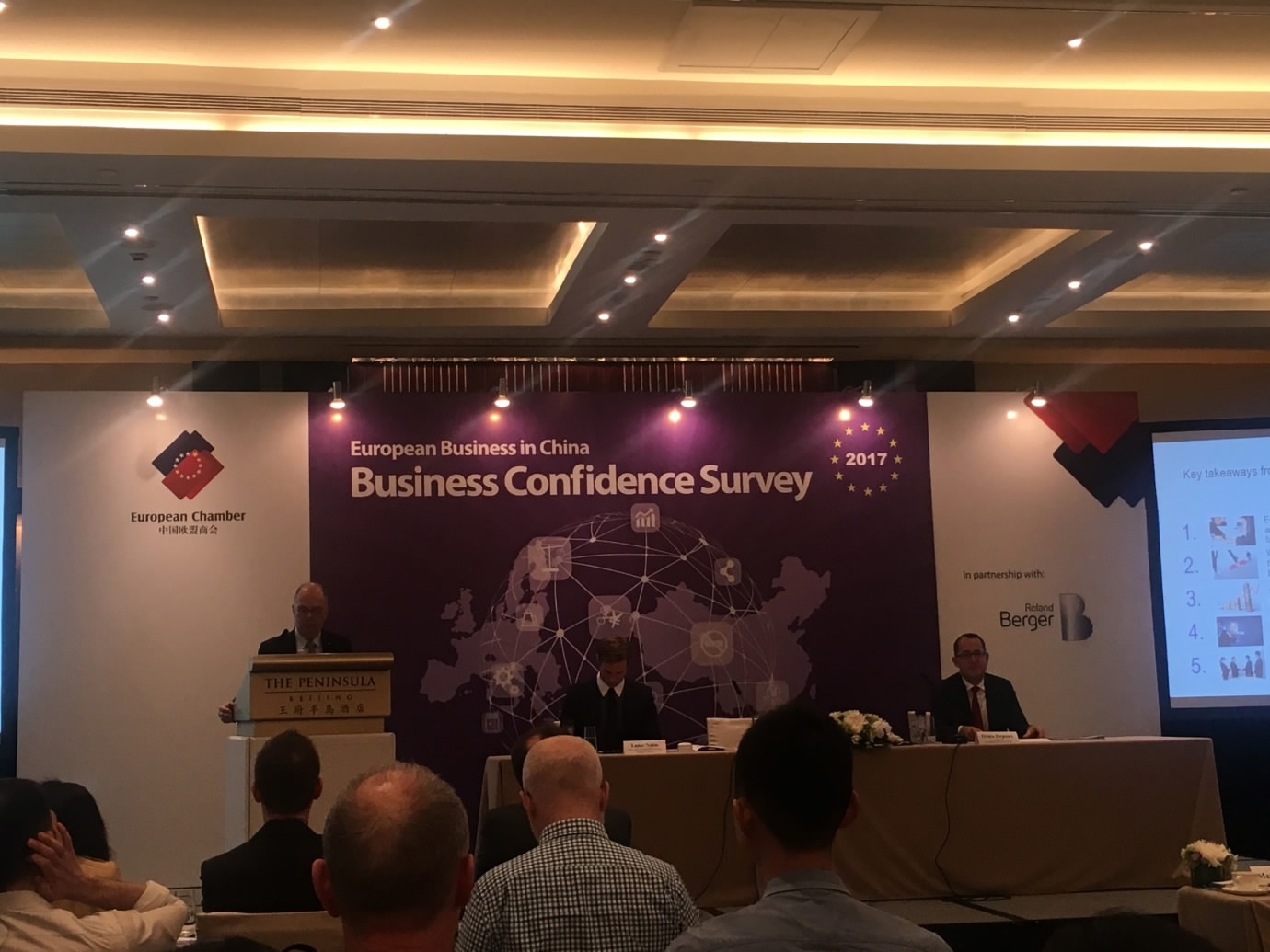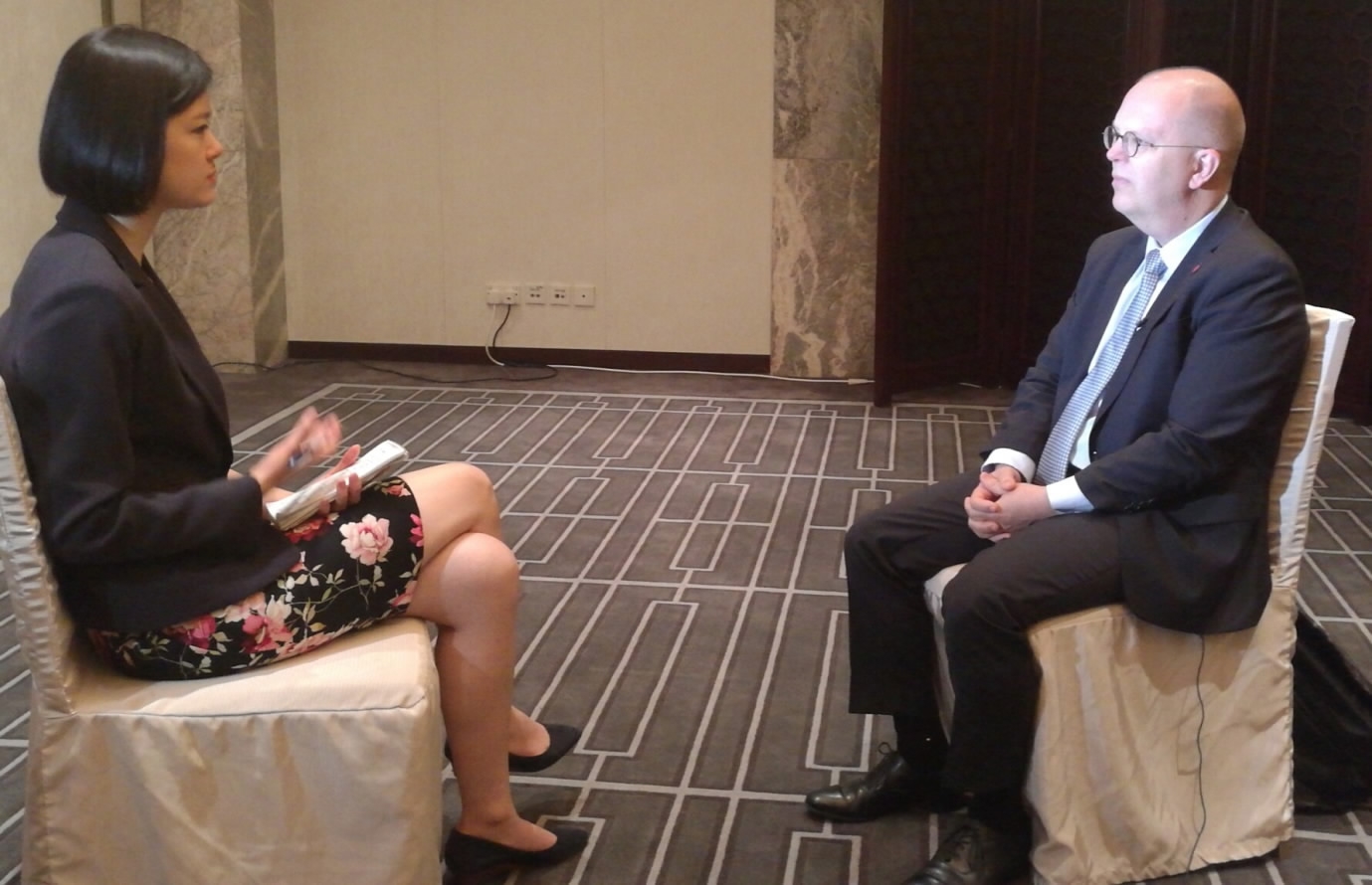By CGTN'S Zou Yun
More than half of the European companies operating in China saw their business improve last year, despite the country’s economic slowdown.
According to a Business Confidence Survey from the European Chamber and consulting firm, Roland Berger, it shows that businesses in information and communications technology, and the automotive, machinery, and environmental sectors all saw revenue growth.
European companies in China witnessed improvements in intellectual property rights protection and government efforts to curb corruption. However, the companies also voiced concern about China's slowing economic growth and market access.

CGTN Photo
The companies want the Chinese government to create a simpler administrative environment and ensure a level playing field for foreign investment.
Mats Harborn, president of European Union Chamber of Commerce, said that’s a need among European enterprises for a more open market.
“If you look at the result of this year’s Business Confidence Survey, our member countries don’t see much more market opening, it’s the same level as last year. So clearly more needs to be done. We want to see more market opening in China so that European companies are as welcome to Chinese market as Chinese companies are to the European market,” he pointed out.

CGTN’s Zou Yun interview with Mats Harborn, president of European Union Chamber of Commerce. /CGTN Photo
Besides the challenges of market access, Harborn said that the other obstacle for European companies in China is regulatory barriers.
“We want to be part of the treating regulation that is conducive to level playing fields, better competition, and therefore better allocation of the resources.”
Harborn also believes that the chamber is paying close attention on the positive signal that China has been sending, and he expects Chinese premier Li Keqiang’s visit to Europe will help generate more concrete actions on further opening the market.
The survey provided a wake-up call for all of Europe as numerous privately owned Chinese companies have become significantly more innovative.










